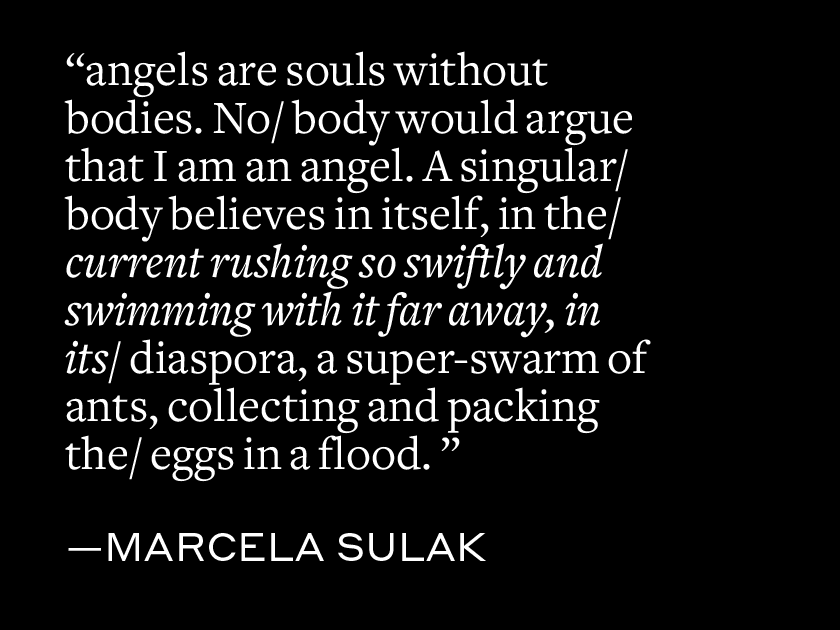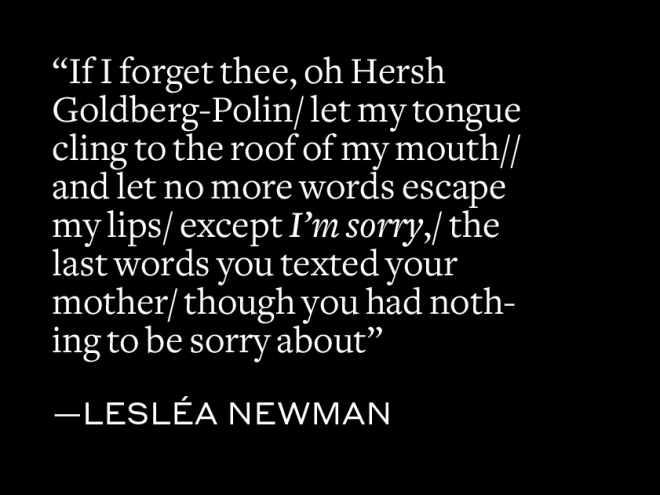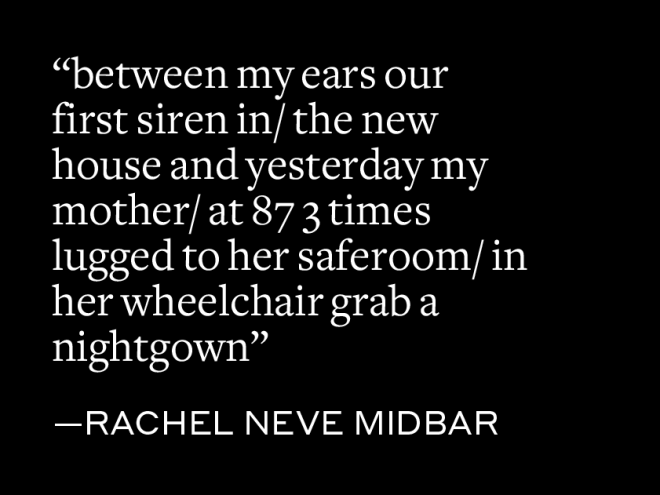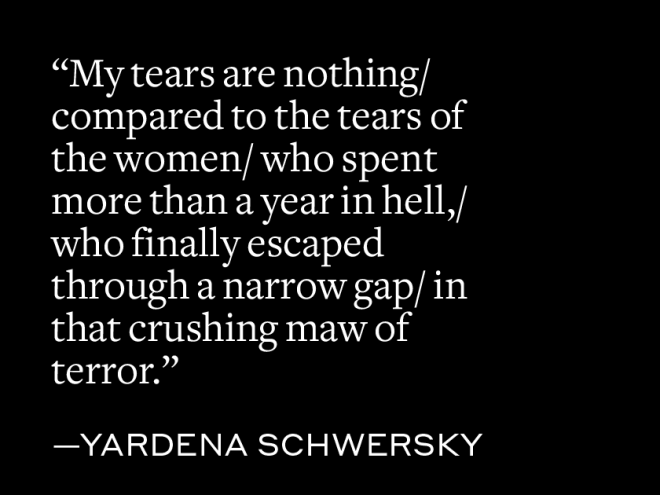
This piece is part of our Witnessing series, which shares pieces from Israeli authors and authors in Israel, as well as the experiences of Jewish writers around the globe in the aftermath of October 7th.
It is critical to understand history not just through the books that will be written later, but also through the first-hand testimonies and real-time accounting of events as they occur. At Jewish Book Council, we understand the value of these written testimonials and of sharing these individual experiences. It’s more important now than ever to give space to these voices and narratives.
In collaboration with the Jewish Book Council, JBI is recording these pieces to increase the accessibility of these accounts for individuals who are blind, have low vision or are print disabled.
A soul without a body is not a human being
angels are souls without bodies. No
body would argue that I am an angel. A singular
body believes in itself, in the
current rushing so swiftly and swimming with it far away, in its
diaspora, a super-swarm of ants, collecting and packing the
eggs in a flood. A
flood is a press for efficiency. There will be a time for disembarking
from this body, a season for empathy. But now, for the bodied, it is
good to have a
home on earth, the place where, when you have to go there, they have to take you in.
I should have called it / something you somehow haven’t to deserve. Still,
I somehow feel very anxious about placing the word
Jew at the beginning of a line about home, so noticeable, or at the end, or middle
Kol ha’olam kulo gesher tzar me’od, to angels and birds in migration,
locating themselves in the heavens, pinning themselves to this land bridge
March and October, and the important thing is
not to be afraid at all. This year the lesser spotted eagles waited for clear skies
of early October to fly. Then what? It is difficult to be in relation to one’s own
protectory. You might think that a
person who does not inhabit a body cannot be killed — who lives on pages and
poems — among a paper people. A
quiet people. Shut the book and you disappear. Open and you
reappear for others’ pleasure. Others’ pleasure is a
safe room in a renovated house, a
temporary space, where angels are still terrible, for it is surprisingly easy to
unauthor(ize) a book, to insert or delete a word, so easy to
vanish. It was exciting to
watch, said a man on another continent about our devastation, It was
exhilarating. Time to climb out of the saferoom of your second body, out of
your nine-million holy books, holding your breath. Here where you are, it is
Zion.
The views and opinions expressed above are those of the author, based on their observations and experiences.
Support the work of Jewish Book Council and become a member today.
Marcela Sulak is the author of five poetry collections, most recently, The Fault, the National Jewish Book Awards finalist, City of Sky Papers, and the lyric memoir Mouth Full of Seeds (2020). She’s co-edited the Rose-Metal Press title Family Resemblance: An Anthology and Exploration of 8 Hybrid Literary Genres. A translator from the Czech, French, and Hebrew, Sulak’s work has been recognized by PEN and the NEA fellowship. Sulak is managing editor of The Ilanot Review, and she directs the Shaindy Rudoff Graduate Program in Creative Writing at Bar-Ilan University.



